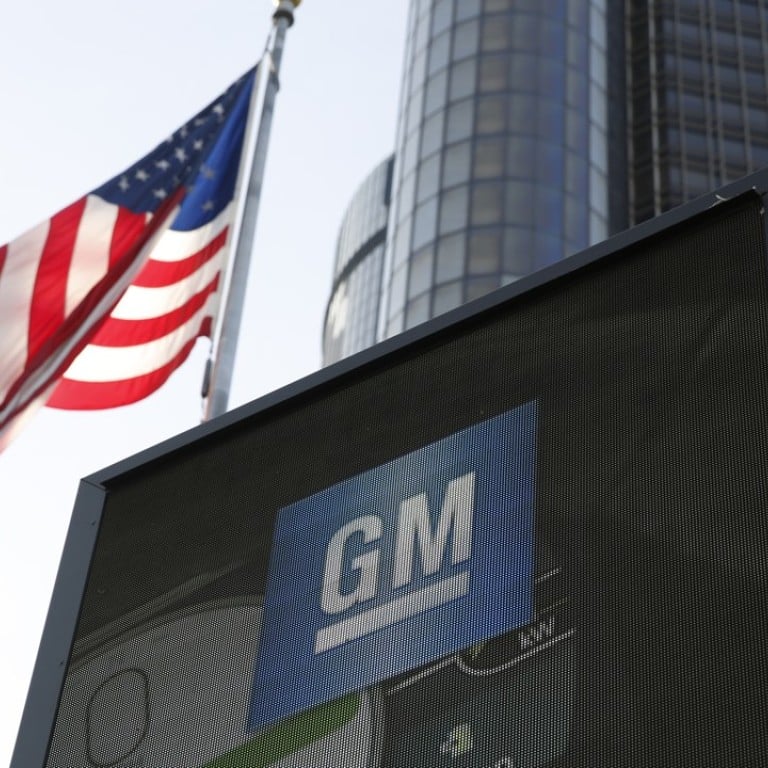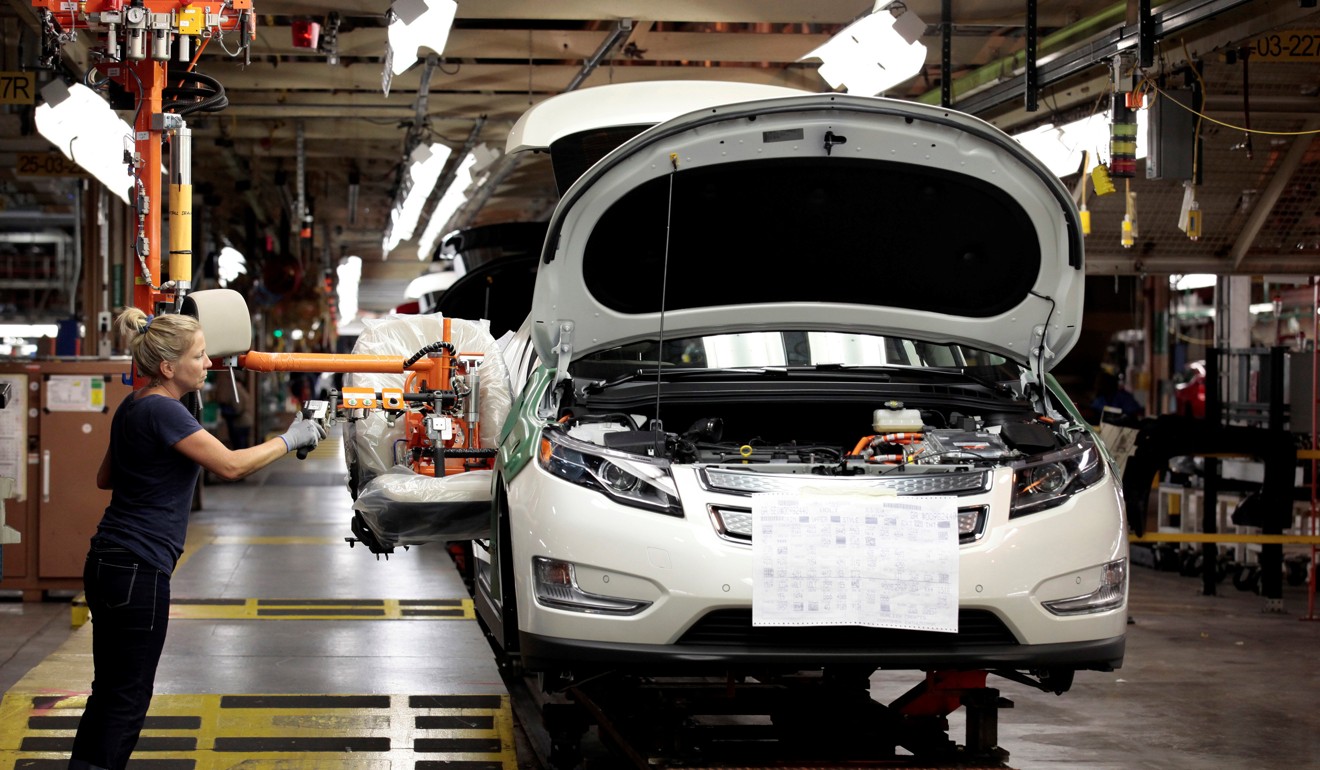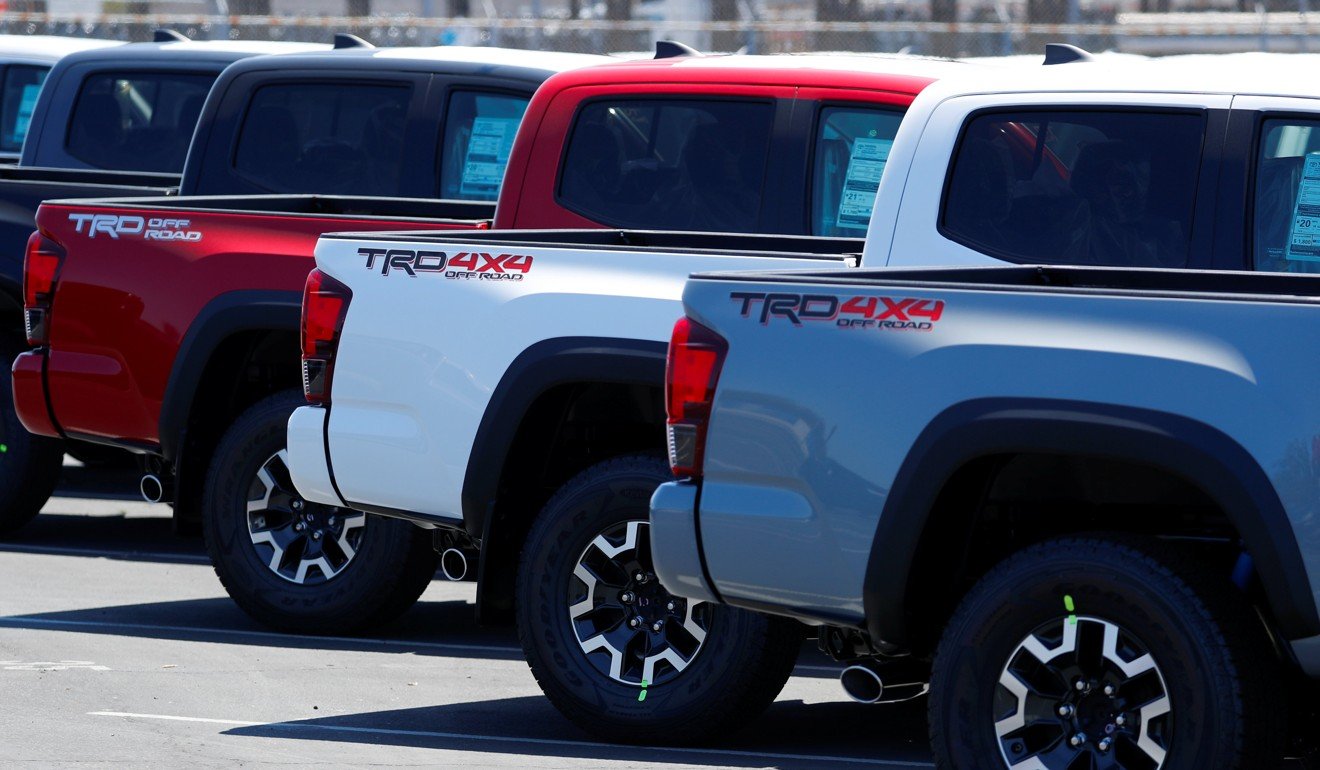
Donald Trump’s import tariffs could lead to fewer American jobs, General Motors warns
GM says even if carmakers opted not to pass on higher costs, tariffs ‘could still lead to less investment, fewer jobs, and lower wages for our employees’
General Motors warned on Friday that expansive US tariffs on imported vehicles being considered by the Trump administration could lead to a “a smaller GM” with fewer jobs while isolating US businesses from the global market.
The Trump administration in May launched an investigation into whether imported vehicles posed a national security threat, and US President Donald Trump has repeatedly threatened to quickly impose a 20 per cent import tariff on vehicles.
Get ready for short-term trade pain, US tells American firms in China
The largest US carmaker said in comments filed with the US Commerce Department that overly broad tariffs could “lead to a smaller GM, a reduced presence at home and abroad for this iconic American company, and risk less – not more – US jobs.”
GM, which makes some vehicles for the US market in Mexico and Canada, said the tariffs could hike vehicle prices and reduce sales.

Even if carmakers opted not to pass on higher costs “this could still lead to less investment, fewer jobs, and lower wages for our employees. The carry-on effect of less investment and a smaller workforce could delay breakthrough technologies,” GM said.
GM operates 47 US manufacturing facilities and employs about 110,000 people in the United States. It buys tens of billions of US dollars worth of parts from US suppliers every year, and has invested over US$22 billion in US manufacturing operations since 2009.
China’s tariffs will not hit US seafood exported for processing
“The overbroad and steep application of import tariffs on our trading partners risks isolating US businesses like GM from the global market that helps to preserve and grow our strength here at home,” GM said.
Some aides have said that Trump is pursuing the national security probe to put pressure on Canada and Mexico to agree to concessions in talks to renegotiate the North American Free Trade Agreement.
GM shares closed down about 2.8 per cent on Friday at US$39.40.
Toyota Motor filed separate comments opposing the tariffs on Friday saying they would “threaten US manufacturing, jobs, exports, and economic prosperity”.
The company noted that Trump has repeatedly praised the Japanese carmaker for investing in the United States, including a new US$1.3 billion joint venture assembly plant in Alabama with Mazda.
“These investments reflect our confidence in the US economy and in the power of the administration’s tax cuts,” Toyota said.
‘We will not back down’: Canada puts tariffs on US$12.6 billion of US goods
Toyota noted that international carmakers assembling vehicles in the United States are based in countries including Japan, German and South Korea “that are America’s closest allies.”
The company added it “is difficult to foresee a situation in which any of them would engage in an armed conflict with the US or cut off supplies of defense materials, and if they did, the United States would have an easy recourse of simply seizing their US plants.”

On Thursday, Toyota North America chief Jim Lentz was in Washington holding meetings with lawmakers on trade issues.
On Wednesday, two major auto trade groups warned that imposing up to 25 per cent tariffs on imported vehicles would cost hundreds of thousands of auto jobs, dramatically hike prices on vehicles and threaten industry spending on self-driving cars.
The US Commerce Department did not immediately comment Friday.
It plans two days of public hearings on July 19-20 and Commerce Secretary Wilbur Ross said last week he aimed to wrap up the probe into whether imported vehicles represent a national security threat by late July or August.

